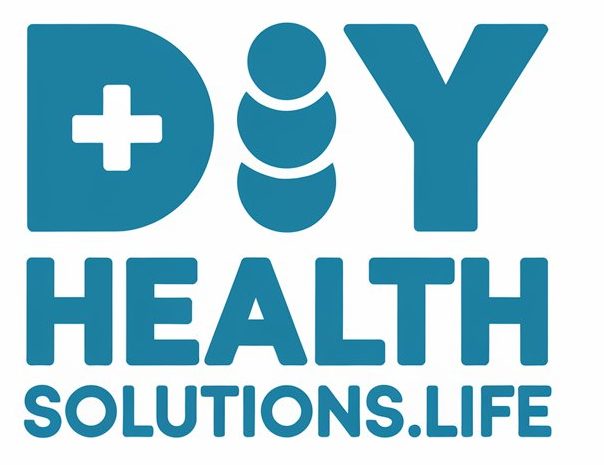Vertigo Relief Without Medication- Here’s How!
You can find relief from vertigo without taking medication, and some simple tricks can really help! Start by staying hydrated and eating a balanced diet—lots of fruits, veggies, and whole grains are great. Try exercises like the Brandt-Daroff or balancing while standing on one leg, which can rebuild your stability. Don’t forget relaxation techniques, like deep breathing or mindful walking, to keep stress at bay. Also, exploring acupuncture or gentle yoga might do wonders too! So, if you’re feeling a bit dizzy, grab a snack, take a deep breath, and keep going to discover more effective tips!
Understanding Vertigo
Understanding vertigo involves grasping the sensations and causes behind this disorienting experience. When you feel like the world is spinning, even when you’re standing still, that’s vertigo. It can be super confusing, right? You might feel unsteady, dizzy, or like you’re on a merry-go-round that won’t stop. This sensation usually happens because of issues in your inner ear, brain, or even your vision.
Your inner ear helps control your balance, so when something goes wrong there, it can throw everything off. Conditions like ear infections, migraines, or even certain medications can trigger these dizzy spells. Isn’t it funny how our bodies can play tricks on us? Sometimes, just moving your head too quickly can spark a bout of vertigo.
It’s important to know that you’re not alone in this. Many people experience vertigo at some point in their lives. Understanding what’s going on in your body can help you feel more in control.
Lifestyle Changes for Relief
When it comes to finding relief from vertigo, small lifestyle changes can make a big difference.
You’ll want to pay attention to your hydration and diet, get moving with some fun exercises, and manage your stress like a pro.
Trust me, these tweaks could help you feel steadier and more balanced in your daily life!
Hydration and Diet
Staying hydrated and maintaining a balanced diet can significantly impact your experience with vertigo. When you’re well-hydrated, your body functions better, and that can help reduce those dizzy spells.
Plus, what you eat plays a big role in how you feel. So, let’s look at some simple tips to help you on your journey to relief!
-
Drink Water: Aim for at least 8 glasses a day. Staying hydrated helps keep your inner ear balanced, which is super important for preventing vertigo.
-
Limit Caffeine: Too much coffee or soda can dehydrate you and might even trigger vertigo. Switch to herbal teas or decaf options instead!
-
Eat Fruits and Veggies: They’re packed with essential nutrients. Foods like bananas and spinach can help keep your potassium levels up, which is a good thing for ear health.
-
Avoid Processed Foods: These often contain high salt levels, which can lead to fluid retention and worsen your symptoms. Stick to whole foods whenever possible.
Exercise and Balance
Making lifestyle changes can greatly enhance your ability to manage vertigo, and incorporating exercise into your routine is a powerful step forward. When you move your body, it helps improve balance and strengthens those muscles that keep you steady. Think of it as giving your body a little tune-up!
You don’t need to run a marathon or join a gym. Simple activities like walking, stretching, or even dancing around your living room can work wonders. Aim for at least 30 minutes most days, and break it into smaller chunks if you need to. Just remember, consistency is key!
Balance exercises, like standing on one foot or practicing tai chi, can be particularly helpful. They train your brain and body to work together, reducing that dizzy feeling.
Plus, you can do them anywhere—who knew standing on one leg could be a party trick?
Stress Management Techniques
Stress management techniques can be a game changer for those dealing with vertigo. When life gets hectic, your body responds, sometimes leading to dizzy spells. By learning to manage stress, you might just feel steadier on your feet!
Here are four simple techniques you can try:
-
Deep Breathing: Take a moment to breathe deeply. Inhale through your nose for four counts, hold for four, then exhale through your mouth for six. It’s like giving your brain a mini-vacation!
-
Mindfulness Meditation: Spend a few minutes focusing on the present. Sit quietly, close your eyes, and notice your thoughts without judgment. It’s like a mental reset button!
-
Regular Exercise: Get moving! Even light activities like walking can help release tension and boost your mood. Plus, it’s a great excuse to enjoy the outdoors!
-
Adequate Sleep: Make sure you’re getting enough rest. A well-rested body is better at handling stress, and you’ll feel more balanced overall.
Give these techniques a go, and you might find yourself managing stress—and vertigo—much better!
Effective Exercises to Try
When dealing with vertigo, incorporating specific exercises into your routine can significantly improve your balance and reduce symptoms.
One great exercise to start with is the Brandt-Daroff exercise. You’ll sit on the edge of your bed, then quickly lie down on one side, keeping your head turned. After about 30 seconds, sit back up and repeat on the other side. This helps retrain your brain to handle movements better—kind of like teaching a puppy to fetch!
Another helpful exercise is the gaze stabilization exercise. Hold your thumb out in front of you, focus on it, and move your head side to side. Keep your eyes locked onto your thumb. If you manage to keep your focus, you’re winning!
Don’t forget about balance exercises, too. Try standing on one leg while holding onto a chair or countertop. As you get steadier, challenge yourself by closing your eyes—just don’t go toppling over!
Alternative Therapies and Treatments
In addition to exercises, exploring alternative therapies and treatments can provide further relief from vertigo symptoms. These options can complement what you’re already doing and might help you feel more balanced—literally!
Here are some therapies you might consider:
-
Acupuncture: This ancient practice involves using thin needles to stimulate specific points in your body. Many people find it helps reduce vertigo symptoms and promotes relaxation.
-
Chiropractic Adjustments: A chiropractor can perform gentle manipulations on your neck and spine. This may help realign your body and relieve some of the tension that contributes to vertigo.
-
Vestibular Rehabilitation Therapy (VRT): This specialized form of physical therapy focuses on improving balance and reducing dizziness through targeted exercises. It’s like giving your inner ear a workout!
-
Yoga and Meditation: Both practices can help you find your center, reduce stress, and improve your overall well-being. Plus, who wouldn’t want to feel a bit zen while tackling vertigo?
Trying these alternative therapies can be a game-changer for managing your vertigo symptoms.
Dietary Adjustments for Vertigo
Making dietary adjustments can significantly impact your experience with vertigo.
First off, you might want to keep an eye on your salt intake. Too much salt can lead to fluid retention, which may worsen your vertigo symptoms. So, try swapping that extra sprinkle of salt for herbs or spices. Your taste buds will thank you!
Next, stay hydrated. Drinking enough water keeps your body functioning well, and it can help reduce dizziness. Aim for at least eight glasses a day, but feel free to add some fun by infusing your water with fruits or herbs.
Also, consider your caffeine and alcohol intake. These can both trigger or worsen vertigo in some people. If you love your morning coffee, try cutting back gradually to see if it helps.
Lastly, a balanced diet rich in fruits, veggies, whole grains, and lean proteins can work wonders. Foods high in magnesium, like bananas and spinach, might help too!
Mindfulness and Relaxation Techniques
Practicing mindfulness and relaxation techniques can be a game-changer for those dealing with vertigo. These strategies help you focus on the present moment, reducing anxiety and stress, which can make vertigo worse.
When you feel the world spinning, grounding yourself can bring relief. Try these four techniques:
-
Deep Breathing: Take a deep breath in through your nose, hold it for a few seconds, and then slowly exhale through your mouth. Repeat this several times. It’s like giving your body a hug from the inside!
-
Guided Imagery: Picture a calm place, like a beach or a quiet forest. Imagine the sounds, smells, and feelings of that spot. This mental vacation can relax your mind and body.
-
Progressive Muscle Relaxation: Tense and relax each muscle group, starting from your toes and working up to your head. It’s like giving each part of you a mini workout before letting it chill out.
-
Mindful Walking: Take a slow stroll, paying attention to how your feet feel on the ground and the sights around you. It’s a simple way to reconnect with yourself.
Give these a try, and you might just find some calm amid the chaos!





